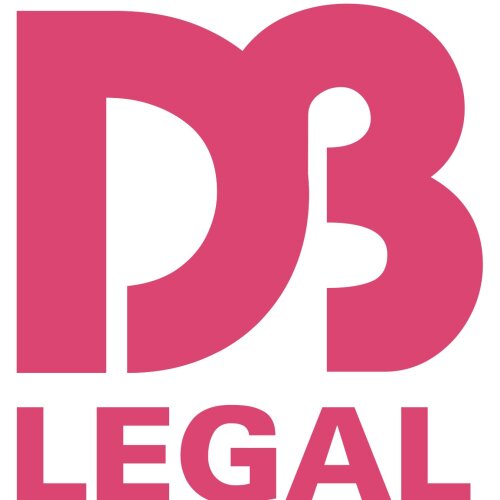Best Employer Lawyers in Vietnam
Share your needs with us, get contacted by law firms.
Free. Takes 2 min.
Or refine your search by selecting a city:
List of the best lawyers in Vietnam
About Employer Law in Vietnam
Employer law in Vietnam is primarily governed by the Labor Code, which lays the foundation for labor standards and regulates employment relations between employers and employees in Vietnam. The Labor Code covers a wide range of topics, including labor contracts, working conditions, wages, occupational safety, and dispute resolutions. Over the past decades, Vietnam has continuously reformed its employment laws to protect workers' rights while also fostering a favorable environment for businesses.
Why You May Need a Lawyer
There are several scenarios where an employer in Vietnam may require legal assistance. For instance, understanding complex labor regulations and ensuring compliance with them can be challenging for businesses, especially those that employ foreign workers. Additionally, legal disputes over employment contracts, termination, or workplace safety might arise, necessitating professional advice. Employers might also seek legal guidance during labor inspections or audits by regulatory bodies.
Local Laws Overview
Several key aspects of Vietnamese labor laws are critical for employers to understand. The Labor Code mandates written employment contracts, and compliance with minimum wage levels is essential. There are specific regulations on working hours, overtime pay, and rest times. Employers must adhere to health and safety laws and provide compulsory insurance for employees. The laws also cover rights for female workers, including maternity leave and policies for hiring disabled individuals. Businesses operating in Vietnam must appreciate the importance of these regulations to avoid legal penalties.
Frequently Asked Questions
What is the legal minimum wage in Vietnam?
The minimum wage in Vietnam varies by region and is subject to changes as set forth by the government. Employers need to stay updated with these regulations to ensure compliance.
What are the standard working hours in Vietnam?
Vietnamese law stipulates a standard working week of 48 hours, typically 8 hours per day. Any work beyond this requires overtime pay.
Are employment contracts mandatory in Vietnam?
Yes, it is mandatory to have written employment contracts in place. The contracts should clearly outline the terms and conditions of employment.
How does the law protect employee rights on termination?
The Labor Code outlines specific conditions and procedures for lawful terminations to protect employees from unjust dismissal.
What types of insurance must employers provide?
Employers in Vietnam must provide compulsory insurance, including social insurance, health insurance, and unemployment insurance, for their employees.
How are disputes between employers and employees resolved?
Disputes can be resolved through mediation, arbitration, or court proceedings. Employers often try mediation first as a cost-effective means.
What are the rules concerning overtime work?
Employers must compensate workers for overtime work, which should not exceed 200 hours annually (or 300 hours in special cases) per the Labor Code.
Are there specific regulations for hiring foreign workers?
Yes, hiring foreign workers in Vietnam involves obtaining work permits and ensuring compliance with immigration and labor regulations.
What is the maternity leave policy?
Female employees are entitled to six months of maternity leave, during which they receive benefits calculated based on their social insurance contributions.
How should employers handle occupational safety and health?
Employers are required to implement safety standards and provide regular training to ensure a safe working environment for all employees.
Additional Resources
For more information, employers can consult various resources such as the Ministry of Labor, Invalids and Social Affairs (MOLISA), the Vietnam Chamber of Commerce and Industry (VCCI), and the local Labor Unions. These organizations provide guidance and updates on labor regulations and compliance.
Next Steps
If you require legal assistance in employment matters in Vietnam, consider consulting an experienced labor lawyer who is familiar with local laws and regulations. Ensure that your business is compliant with current labor codes to avoid any legal hurdles. Conduct regular audits of your employment practices and engage in continued communication with your legal advisors to remain informed about any legislative changes.
Lawzana helps you find the best lawyers and law firms in Vietnam through a curated and pre-screened list of qualified legal professionals. Our platform offers rankings and detailed profiles of attorneys and law firms, allowing you to compare based on practice areas, including Employer, experience, and client feedback.
Each profile includes a description of the firm's areas of practice, client reviews, team members and partners, year of establishment, spoken languages, office locations, contact information, social media presence, and any published articles or resources. Most firms on our platform speak English and are experienced in both local and international legal matters.
Get a quote from top-rated law firms in Vietnam — quickly, securely, and without unnecessary hassle.
Disclaimer:
The information provided on this page is for general informational purposes only and does not constitute legal advice. While we strive to ensure the accuracy and relevance of the content, legal information may change over time, and interpretations of the law can vary. You should always consult with a qualified legal professional for advice specific to your situation.
We disclaim all liability for actions taken or not taken based on the content of this page. If you believe any information is incorrect or outdated, please contact us, and we will review and update it where appropriate.
Browse employer law firms by city in Vietnam
Refine your search by selecting a city.

















